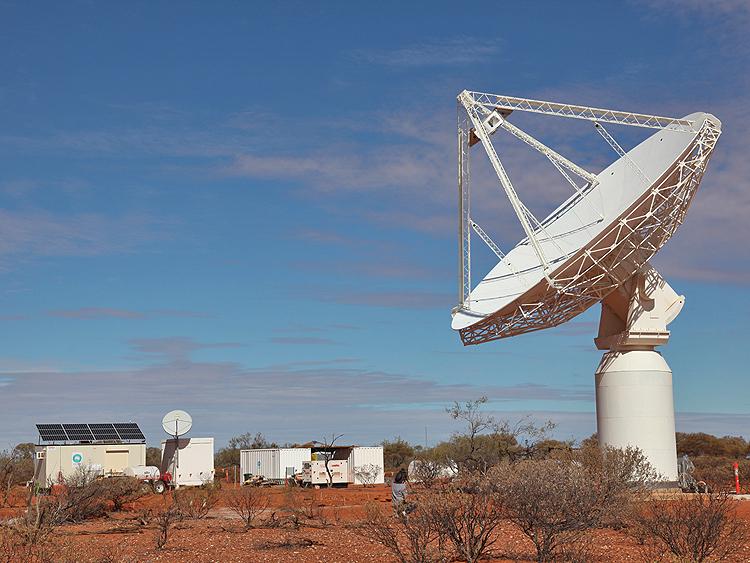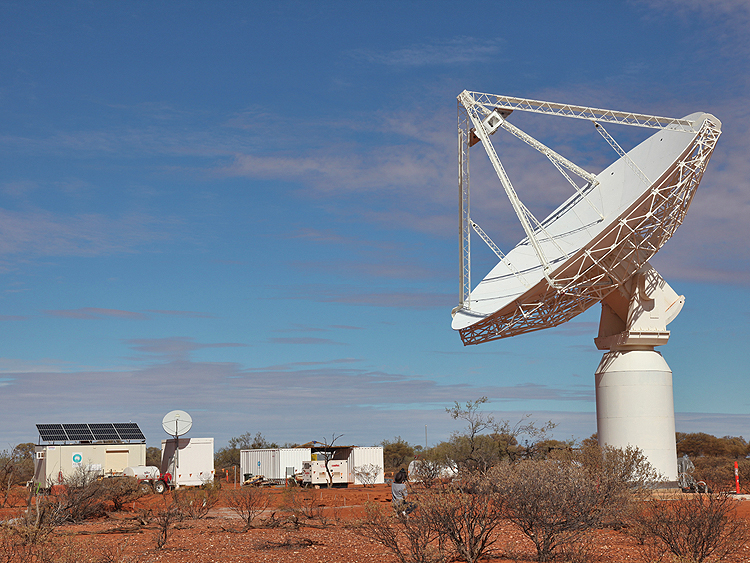The world’s largest radio telescope will produce more data in a single day than the entire world generates over a year. Researchers at the International Centre for Radio Astronomy Research (ICRAR) are now creating systems to handle the data produced by the Square Kilometre Array (SKA), which is yet to be built. Australia, New Zealand, and Southern Africa are bidding to host the telescope.
As the SKA scans galaxies 50 light years away, it will generate one exabyte of data a day—equivalent to a billion terabytes, or one quintillion bytes. A joint venture between Curtin University and the University of Western Australia (UWA), ICRAR is developing new technology for data storage to prepare for this, in collaboration with data storage infrastructure provider DataDirect Networks.
Work preparing for the SKA project is “bringing together some of the world’s leading minds to figure out how to solve the data deluge,” said ICRAR Director Peter Quinn, in a press release.
The agreement between ICRAR and DataDirect Networks comes just after a new Fornax supercomputer was installed at UWA to help drive ICRAR’s new radio telescopes. The system is 10,000 times faster than a typical office desktop computer.
Other systems are still on the list. ICRAR is preparing to develop a low-frequency system of electronic antennas with no moving parts, dubbed SKA-low. An international collaboration between organizations in the U.K., India, and parts of Europe will be working on the system.
“Another benefit of our role in this collaboration is more opportunity for Australian industry to be involved in the SKA, regardless of where it is sited,” said Professor Peter Hall, ICRAR deputy director responsible for engineering, in a press release.
Hall noted that the SKA-low’s design is a more recent development in radio astronomy.







